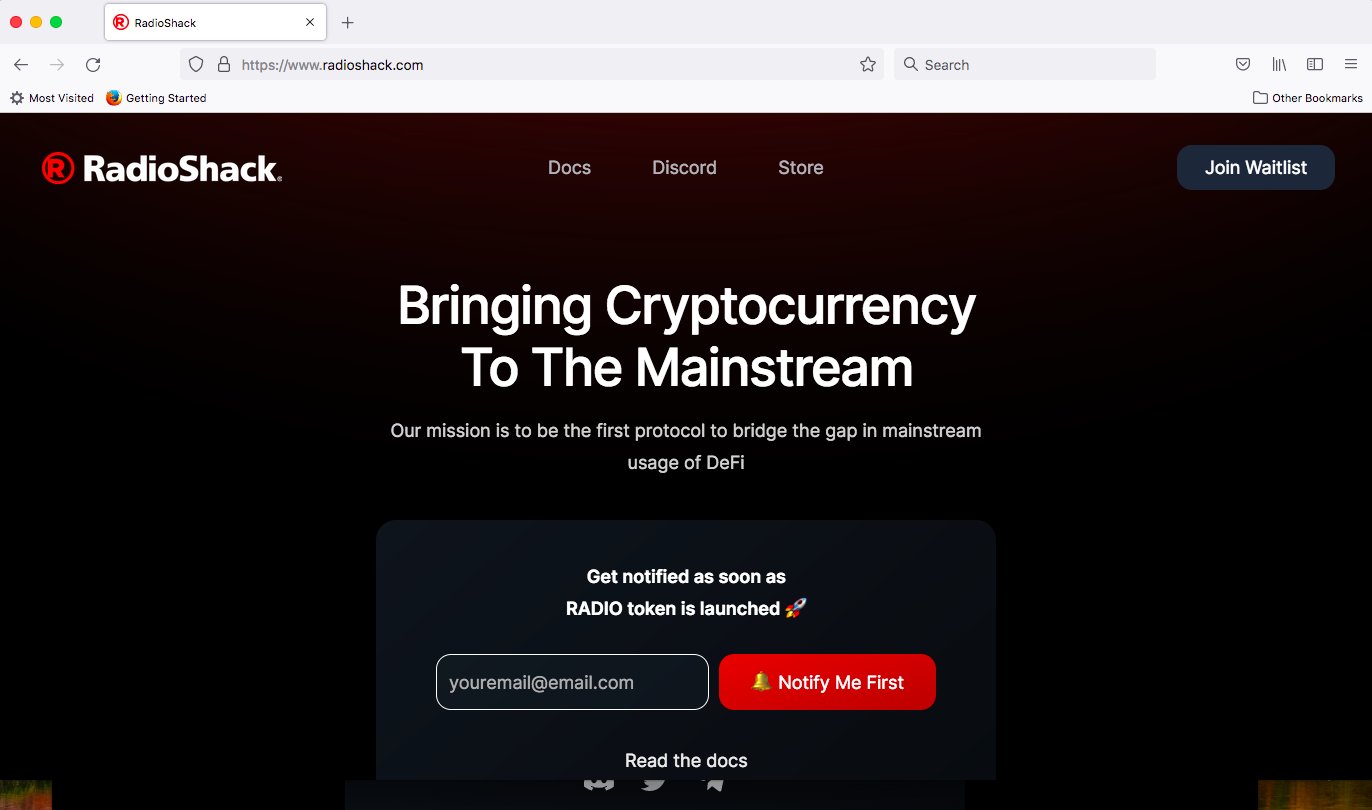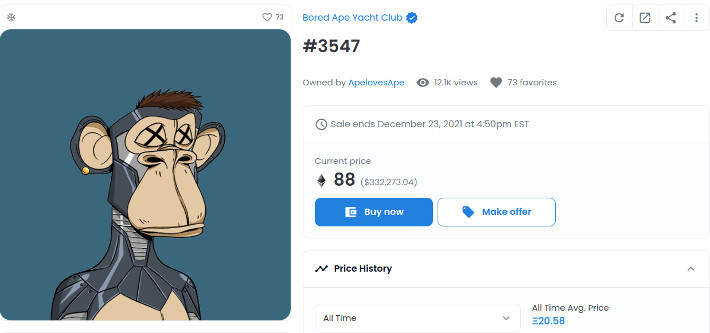cryptocurrency
El Salvador Partners with DeFi Lending Platform for Bitcoin-Backed SMB Loans
January 21, 2022
El Salvador continues to be an unprecedented experiment of mainstream crypto use. The small Latin American country that shifted its national currency to Bitcoin alongside the US dollar in June is now partnering with Acumen, a DeFi lending platform, to power Bitcoin-backed loans.
“Basically what we are doing is an alliance with the government,” said Andrea Maria Gomez, a Project Manager for Acumen. “[The government] is not backing anything. They are just giving us the channels for which we will reach the small and medium enterprises.”
CONAMYPE, an acronym in Spanish that represents the national commission for medium and small enterprises, already offers business financing. Rates for this are generally high, and just like in the US, the qualifications to get financing are extensive. With Bitcoin-backed loans, it seems that the funding process will be the thing that affects El Salvadoran merchants the most.
“We work through a stable doc so investors put their crypto in there, we convert it into a stable coin, and what we eventually loan out to the end user is dollars,” said Gomez. “So we don’t give Bitcoin or Solana or anything like that, we give them dollars.”
“For [merchants], it’s easier,” Gomez continued. “You are not depending on the volatility of a coin, you just have dollars.”
Just like in the US, funders borrow money at high rates from banks, resulting in the cost of financing being pushed down to the final borrower. In a government that has Bitcoin as an official currency, Acumen can lend Bitcoin backed dollars at a lower rate than what’s already being offered in the marketplace.
“What we are doing, this is like an initial run, is we are going to contribute one fund to CONAMYPE for them to be able to [lend] at a lower rate,” said Gomez. “We can provide at a lower rate because in crypto, the capital is loaned at a lower rate.”
When asked about the lack of digitally-native people in El Salvador, Gomez stressed that the application process doesn’t require a crypto-enthused business owner. “Business owners don’t need to understand the tech or go to a wallet to ask for the loan. It’s a regular loan to them. The difference is, the source of the funds is coming from this protocol.”
The El Salvadoran government is confident that these loans will open up access to capital to small businesses who would have no alternative source for funding. Mónica Taher, Technological & Economic International Affairs Director at Government of El Salvador, shared her thoughts with deBanked about the vision for this plan down the line.
“The Bitcoin small loans for Salvadoran businesses will re-energize the economy by allowing the unbanked to have the opportunity to have access to digital money and create a credit history,” said Taher.
This Just In: Crypto Transactions Aren’t Tax Free
January 20, 2022 Patrick White, CEO, Bitwave
Patrick White, CEO, Bitwave“I don’t always believe people that say they are surprised about having to pay taxes on crypto. There’s a field on your tax form to say where you’ve made money doing illegal things. If you sell drugs, there’s a place to report how much money you’ve spent selling drugs. The IRS doesn’t care. Everything is taxed in this country.”
There is no such thing as too many crypto transactions when it comes to accounting purposes according to Patrick White, CEO of Bitwave. Bitwave operates the software that does the accounting for major blockchain companies and retailers who have taken crypto as payment.
White says that the high volume of crypto transactions aren’t coming from individuals sending digital assets back and forth, but rather from the companies that host the infrastructure of these transactions.
“It’s not just trading, trading is fun and we all love the rat race that is trading, but where it’s a lot more interesting is how some of our customers who are in the NFT space are seeing millions of revenue transactions a month.”
These sites like OpenSea, a client of Bitwave, are seeing sky high amounts of these types of transactions. When asked about the cost of accounting for an individual doing ten-thousand trades a month, White laughed.
“Ten-thousand trades a month is nothing,” he said.
 White spoke of an instance which is seemingly a common occurrence in the crypto world. “We had a customer who when we were running their [transactions], I couldn’t figure out [an issue] with one of their months. I went to go look at the data, and they had turned on a Binance bot and without even realizing it, they didn’t know this, they accidentally had 200,000 trades in a month. The volume is incredible.”
White spoke of an instance which is seemingly a common occurrence in the crypto world. “We had a customer who when we were running their [transactions], I couldn’t figure out [an issue] with one of their months. I went to go look at the data, and they had turned on a Binance bot and without even realizing it, they didn’t know this, they accidentally had 200,000 trades in a month. The volume is incredible.”
When asked about how digital assets have impacted the accounting world, White stressed that the amount of transactions have resulted in companies appearing larger than they are from a transactional-perspective. According to him, some of his clients are doing as many transactions as some of the largest companies in the world.
“[One client] is a one-year old company that is doing the volume of a sixty year-old retail business, it’s unheard of.”
When asked further about the difference of cost in accounting digital assets versus dollars, White explained that it isn’t much different than how larger companies have maintained their books for some time.
“No matter what, if you are a high frequency trader and you’re making hundreds of millions of trades a year, you will need software to deal with that,” said White. “I wouldn’t say that [the amount of transactions] are increasing costs across the board, it is a cost that you would already be expected to [have].”
When asked about the apparent vacuum of crypto-native accountants, White seemed to cast blame on the approach of the information. When hiring, he says he finds more value in people with engineering experience over accounting experience, and blockchain experience over anything else.
“[Other accountants] are trying to apply finance 1.0 things to this crypto world,” said White. “We look for good engineers. A good engineer can figure anything out, a bad engineer with accounting experience can’t. We’re looking for blockchain experience, as blockchain [technology] is more difficult than accounting in many ways.”
While most businesses will file extensions this time around and finish their taxes in October, White believes that blockchain accounting will become more widespread as new firms leverage the infancy of the space and settle into their niches.
“Cottage industries will come up in order to enable the IRS,” said White. “I don’t expect the IRS to build this technology or this understanding in-house. There will be people and businesses that will do it for them.”
With the IRS’ decisions about taxing crypto having the potential to change at any notice, White stressed the necessity for malleability when developing this kind of accounting technology in such an unpredictable space.
“We’ve designed Bitwave from the very beginning to be able to rapidly adjust to the new laws that are coming out,” he said. “Even back then, it was very obvious that we couldn’t build this tech in such a way that it is inflexible.”
Dorsey Focuses Tweets on Bitcoin and Anti-Web3 Since Leaving Twitter
January 18, 2022 Jack Dorsey’s departure from Twitter didn’t leave him without a job. He’s still the CEO of Square (now Block), a payments company that is one of the largest small business lenders in the country. Still, all that extra time on his hands must mean he has plans in the works, especially since he believes hyperinflation is right around the corner.
Jack Dorsey’s departure from Twitter didn’t leave him without a job. He’s still the CEO of Square (now Block), a payments company that is one of the largest small business lenders in the country. Still, all that extra time on his hands must mean he has plans in the works, especially since he believes hyperinflation is right around the corner.
If his tweets are any indication, Dorsey is focused mainly on Bitcoin as both an answer to inflation and as a counter to the burgeoning “web3” concept attributed mainly to projects on the ethereum blockchain.
“You don’t own ‘web3.’ The VCs and their LPs do,” Dorsey tweeted on December 20. “It will never escape their incentives. It’s ultimately a centralized entity with a different label. Know what you’re getting into…”
“The VCs are the problem, not the people,” he later added.
His comments rubbed some in Silicon Valley the wrong way.
I’m officially banned from web3 pic.twitter.com/RrEIAuqE6f
— jack⚡️ (@jack) December 22, 2021
Since being “banned by web3,” Dorsey announced that Block is building an Open Bitcoin Mining System to help make mining more distributed and efficient. A tweet thread he shared by Block Hardware Manager Thomas Templeton explained exactly what that means:
“We want to make mining more distributed and efficient in every way, from buying, to set up, to maintenance, to mining. We’re interested because mining goes far beyond creating new bitcoin. We see it as a long-term need for a future that is fully decentralized and permissionless.
We started by digging into two big questions. 1) What are customer pain points today? 2) What are the specific technical challenges? We spoke with members of the mining community to learn more about their experiences. Here’s what we’ve found so far:
1/ Availability. For most people, mining rigs are hard to find. Once you’ve managed to track them down, they’re expensive and delivery can be unpredictable. How can we make it so that anyone, anywhere, can easily purchase a mining rig?
2/ Reliability. Common issues we’ve heard with current systems are around heat dissipation and dust. They also become non-functional almost every day, which requires a time-consuming reboot. We want to build something that just works. What can we simplify to make this a reality?
3/ Performance. Some mining rigs generate unwanted harmonics in the power grid. They’re also very noisy, which makes them too loud for home use. Unsurprisingly, all miners want lower power consumption and higher hashrates. What’s the right balance of performance vs other factors?
Developing products is never a solo journey, and evaluating existing tech is always part of our practice. For this project, we started with evaluating various IP blocks (since we’re open to making a new ASIC), open-source miner firmware, and other system software offerings.
We are interested in performance *and* open-source *and* our own elegant system integration ideas. Which tech and which partners should be on our list to consider? We’ve learned so much just from these preliminary conversations and we want to keep this going.
Team. We’re incubating this investigation within Block’s hardware team and are starting to build out a core engineering team of system, asic, and software designers led by @afshinrezayee. A few of the open roles are Electrical Engineers, Analog Designers, and Layout Engineers.
Thanks for engaging with our work. If you have questions, want to share more feedback about the pain points or missing features of the existing mining solutions, or know someone we should be talking to about our open roles, you can reach us at miningsystem (at) block (dot) xyz”
As for inflation, well Dorsey’s not so shocked that the number continues to tick upwards.
damn Santa didn't take the transitory inflation away https://t.co/P1CFEIQyNV
— jack⚡️ (@jack) January 12, 2022
HODL! How Crypto Can Make IRAs Attractive to Young People
January 14, 2022 “I’ll be honest, I don’t know if I have had a client under the age of 25.”
“I’ll be honest, I don’t know if I have had a client under the age of 25.”
Tom Tantillo, an IRA Specialist with NuView Trust, thinks that cryptocurrencies can be the way to finally get younger people excited about investing for retirement. As the emergence of web3 has opened up the door to parts of the financial world for many who would otherwise had never have taken part, Tantillo believes that the same can now be mimicked in IRAs.
“Everyone loves paying less taxes, and everyone loves giving less money to Uncle Sam,” said Tantillo. “[However] the main thing is getting young people excited to save for retirement, because it’s not sexy.”
According to Tantillo, a self-directed IRA with digital assets creates a perfect balance of risk and reward for a digitally native investor. Much like mutual funds or traditional stocks, crypto packaged alongside other conservative investments can create big returns in portfolios.
“If you put 2-3 percent of your portfolio into crypto, just the top ten ones off market cap, not going crazy or anything, you can boost your portfolio returns past the S&P 500 average and up to 16 percent.”
After NuView’s investor’s retreat last week, Tantillo claims that after inquiring about feedback from clients, the highest rated panel at their event was the three hour panel dedicated to digital assets. “Clients were like, ‘this cryptocurrency stuff, I don’t know much about it, but I’m interested and I want to get started.’”
Not only do digital assets provide a trendy appeal to retirement investing, they also provide the technology element that younger people see as a sense of legitimacy in a financial product. Tantillo believes that although the potential for digital assets is astronomical in terms of changing the investment mindset of younger people, he also is aware that the current system and demographics in retirement savings are holding the innovation back to a certain extent.
“The whole reason why I educate myself on this is so I can stay ahead,” he said. “That’s what I encourage everyone to do. I don’t want to be that old parent asking their son or daughter how to use tech, I don’t want to fall behind.”
With the maximum contribution in most IRAs being no more than $6,000, Tantillo argues that it’s almost a no-brainer for a financially intelligent crypto enthusiast to bank on digital assets for retirement. “You can do quite a lot of damage with $6,000,” he said. “If you put $6,000 of Bitcoin in an IRA six years ago, you’d be chillin.”
elfDAO, the Crowdfunding Campaign to Buy Gifts for Kids
December 22, 2021 Move over ConstitutionDAO, the latest Decentralized Autonomous Organization, known as elfDAO, is seeking to leverage the power of crypto-fundraising to “fund, organize, and donate gifts to institutions, orphanages, and low-income neighborhood centers [in order to] bring holiday joy to as many children as possible.
Move over ConstitutionDAO, the latest Decentralized Autonomous Organization, known as elfDAO, is seeking to leverage the power of crypto-fundraising to “fund, organize, and donate gifts to institutions, orphanages, and low-income neighborhood centers [in order to] bring holiday joy to as many children as possible.
It can all be accomplished through an ethereum wallet and an app where the DAO holds the funds, where more than $30,000 was raised in the first 24 hours since the campaign went live. That’s enough to pay for approximately $1,200 gifts for kids.
“We are not formally affiliated with ConstitutionDAO,” a representative of the DAO said, “however, many members of our advisor team were previously part of the core team at ConstitutionDAO. We are so grateful for their guidance.”
The idea for the campaign came from Byeongjun, @bjmoonn on twitter, who was eager to build something meaningful. From there, a team was assembled to turn the concept into reality.
“This is entirely a charitable endeavor,” the representative said. “All funds raised, apart from the 2.5% of funds raised to cover overhead costs (1% for multi-signature wallet and Juicebox gas fees, 1.5% for enDAOment, our fiscal sponsor’s transaction fees) will go towards charitable causes. All overhead costs will be transparently documented and none will be used to compensate the core team — leftover operational funds will be contributed to charity.”
The deadline to contribute is December 31st. The hope is that the DAO will raise $1 million, enough to buy gifts for 40,000 kids.
Some of the logistical questions will be decided by votes cast by the contributors.
“Contributors ($GIFT token holders) will vote on our initial governance proposal, which will set the specifics for how charity proposals and voting by token holders will work,” the representative said.
Contributions can be made via elfDAO.
For full disclosure, I have personally made a donation to the DAO, but I am not a core team member, advisor, or otherwise affiliated with the project.
RadioShack is Launching a Crypto Swap
December 19, 2021 If you had RadioShack on your 2021 DeFi bingo card, congratulations, you’ve won. The company announced that its “mission is to be the first protocol to bridge the gap in mainstream usage of DeFi” and it plans to do this, apparently, by launching a swap.
If you had RadioShack on your 2021 DeFi bingo card, congratulations, you’ve won. The company announced that its “mission is to be the first protocol to bridge the gap in mainstream usage of DeFi” and it plans to do this, apparently, by launching a swap.
RadioShack wants to compete with the likes of Uniswap, a smart-contract-based crypto exchange where users can “swap” tokens without having to register on a formal exchange like Coinbase.
The business is a gold mine, according to RadioShack.
“The concept of a swap stands out first and foremost as the place of low-hanging fruit – fruit that is spinning off incredible levels of net profit,” the company said. “Profit not just from speculation like Bitcoin or other cryptocurrencies, but ones born out of trading fees. Some existing swaps like Uniswap or Sushiswap reportedly are doing $1-$7 million net profit per day! They are the current profitable forces of nature in the DeFi world.”
Use of a “swap” is how tokens issued by the ConstitutionDAO crowdfunding saga leaked out into the publicly tradeable marketplace, for example. What was supposed to be a “governance token” to vote on where a copy of the United States Constitution would be held, instead turned into a tradeable novelty asset (like pogs or baseball cards) with a soaring value, all because of decentralized swapping. More than $100 million worth of the novelty governance tokens stemming from the failed bid to buy the Constitution were traded just in the last 24 hours alone, according to Coinmarketcap.com.
“RadioShack DeFi is focused on the early majority,” the company said. “It will become the first to market with a 100 year old brand name that’s recognized in virtually all 190+ countries in the world.”
NFT Owner’s Typo Costs $297K
December 13, 2021It seems the only thing blockchain technology can’t promise is a solution to human error.
The owner of an NFT Bored Ape Yacht Club #3547 got their decimals mixed up on Saturday when they sold the token for 0.75 eth, or 1% of its market value, by mistake. In an attempt to sell the token for 75 eth, or $300,000, the NFT was sold in error to an automated buyer in a call option-like purchase for $3,066, according to CNET.
After the purchase, the buyer dumped ten times the amount paid for the NFT into gas fees to process the transaction instantaneously, a move that prevented any chance of the error being remedied.
“How’d it happen? A lapse of concentration I guess,” the seller of Bored Ape #3547 told CNET. “I list a lot of items every day and just wasn’t paying attention properly. I instantly saw the error as my finger clicked the mouse but a bot sent a transaction with over 8 eth [$34,000] of gas fees so it was instantly sniped before I could click cancel, and just like that, $250k was gone.”

Members of the NFT legal community spoke to deBanked about how this type of stuff is all too common and unfortunate, but just comes with the territory of an unregulated financial space.
“It’s a pretty typical problem here in the Wild West,” said Jacob Martin, an attorney specializing in NFTs and author of the NFT Tax Guide. “It’s user error, not platform error. It sucks, but it is what it is.”
The Bored Ape NFT collection is one of the most sought after collections on the blockchain, with entry level tokens being worth about $200,000. While this error may have been able to be fixed in the world of traditional finance, the unforgiving nature of the blockchain world allows errors like this to be cashed in on by opportunistic purchasers.
Back in August, another Bored Ape was accidentally sold for $26,000. When the seller offered the purchaser almost double that to return the NFT, the new purchaser flipped the token to another user for $150,000.
In November, Cryptopunk #7557 which at the time was worth $19 million, was accidentally listed for $19,000. It immediately sold without remedy for the error.
When asked if regulation would help remedy errors like this in the future, some NFT legal gurus were weary about turning to government for solutions to user-committed blockchain errors.
“I don’t think it’s about regulation, it’s about education,” Shekinah Apedo, an attorney who serves as a Compliance SARs Analyst for Bittrex and NFT legal consultant to numerous companies, told deBanked. “The point of decentralization is that there’s no middleman or institution to run to when an error occurs, like one may do with a typo during a bank transaction. Education is necessary and warnings involving risk should be made known.”
“Cigarettes are legal but they are required to have warning labels,” Apedo continued. “Perhaps, regulation involving warning labels or advertising the risks of being your own bank as an NFT and crypto trader or investor would be good for the mainstream public.”
Q&A with Rachel Sanders on how Small Businesses Can Utilize Blockchain Tech
December 3, 2021 At the NFT BZL conference in Miami on Tuesday, deBanked bumped into Rootine, a vitamin company that is looking to expand into the crypto space. Rootine is a small business that exists fully in the tangible world and sells a tangible product. They offer a completely customized vitamin concoction to their customers via questionnaires that identify biomarkers on their online platform.
At the NFT BZL conference in Miami on Tuesday, deBanked bumped into Rootine, a vitamin company that is looking to expand into the crypto space. Rootine is a small business that exists fully in the tangible world and sells a tangible product. They offer a completely customized vitamin concoction to their customers via questionnaires that identify biomarkers on their online platform.
This all begs the question, how do small businesses like Rootine leverage crypto? Rachel Sanders, CEO and co-founder of Rootine, shared her thoughts.
Q (Adam Zaki)- Your product is obviously inspired by tech and customer experience. Why are these fundamentals of Rootine?
A (Rachel Sanders)- We are in the middle of a health data revolution. More consumers than ever before have access to critical data about their health and this access will only grow. People should be able to leverage their data to optimize their health with precision health products and actionable insights tailored to their unique data and goals. Technology is the key to make this possible.
At Rootine, our mission is to empower members to leverage their data to achieve optimal health and fuel their potential. Rootine analyzes your body to deliver a precision daily multivitamin engineered to optimize your health, and then fine-tunes your formula over time to continuously provide optimal support for your body. Our team has worked hard to build with a human-first mentality, creating a brand that both delights our members and makes a real, and positive impact on their health. We are proud to empower thousands of members to improve their health and are excited to make an even bigger impact in 2022!”
Q-What was Rootine doing at an NFT conference?
A- As the world of web3 and NFTs ballooned in the second half of 2021, we saw a community emerging celebrating vices and fueled by alcohol. There was also this odd dichotomy occurring where health influencers were changing their profile pictures to NFTs depicting un-healthy vices. We believed that heath should be a central part of the conversation in web3, so we dove in.
Rather than build a branded NFT project, we spearheaded a collaborative effort to launch Apex Optimizers, the first NFT project exclusively focused on health and human performance optimization. Community members represent brands like Eight Sleep, Rootine, Hydrant, Span Health, Bioloop, Aloha, Gwella, OneSkin, and Bristle. Early team members from Levels and founders at Bristle, health experts like Louisa Nicole and Dr. Sohaib Imitaz, professional athletes like Justin Gatlin, as well as a number of high performers and crypto and NFT heavy hitters like Steve Aoki.
It has been difficult working in unchartered territory (as a project like this has never been done before), but we were driven by a mission to build an inclusive community highlighting the importance of data-driven health and to deliver tangible real life utility to holders. We have been fortunate to collaborate with some of the top health experts, brands, athletes, and founders in human performance while building a community that is already inspiring its members to improve in areas like sleep, stress, nutrition, fitness, mental health and more.
Q-How will NFTs enhance your product? Why do you think your customers would be more willing to buy products that have some type of blockchain component?
A– As we think about the future of the metaverse, consumer products and brands will play a large role. Exactly what that role looks like is yet to be determined. What we do know is that health will continue to matter and that consumer health brands will need to have a strategy around how they will tie their physical products and experiences into the digital world. As for Rootine, creating a trusted brand and impactful community is always top of mind. To do that, we want to be where our members are and offer unique opportunities that members will not find elsewhere.
One example of that is helping to launch Apex Optimizers. Apex Optimizers is just one of the offerings of the Precision Health Club and it is first and foremost an awesome community of like-minded data-driven health enthusiasts looking to improve how they look, feel, and perform everyday. Gaining access to that community is something Rootine can offer that others cannot, and that is valuable. Through Apex Optimizers we are also able to offer loyal Rootine members access to exclusive perks like 1:1 lessons with pro-athletes, multi-brand discounts and product drops, and real-life wellness experiences.
Q-What are you thoughts on access to capital for small businesses? Has Rootine ever found it difficult to get a loan? Do you think crypto could help the imbalance of access to funds for small businesses?
A- Access to VC capital is a challenge for many. In the VC world, only 2.2% of funding goes to female founded companies, and other minorities and underrepresented founders have similar difficulty. For others, the capital markets have been very founder-friendly recently, with companies raising VC funding at unprecedented valuations.
In the non-VC world, there are a number of new options coming to market that make it easier to get non-dilutive funding. Pipe and Clearco are two great examples. However, to get access to that funding, you have to meet specific size and business model criteria.
Crypto certainly has the ability to put more fundraising power into the hands of creators and builders. There will be more companies using crypto as a way to raise seed capital, and we are already seeing this trend. One thing to note here, is that as the barrier to enter web3 drops, there is going to be more competition for dollars, which will raise the bar on the projects and teams that will succeed in getting funding this way.
Q-Is crypto a topic of conversation in the office? I’m trying to gauge whether your staff has an interest in crypto or if this is just a pure marketing strategy.
A- We have a combination of people very into crypto (e.g. our lead product designer who was an early advocate and continues to be a key thought leader on the team) as well as crypto novices.
It has been exciting to see how the conversations on slack have created an environment of learning and support, helping more people get into the space in a way they are comfortable with. Apex Optimizers’ mission is to make an impact at scale through community, democratizing access to innovation, and by elevating the message around the importance of data-driven health.
For the brands involved, there is of course a marketing component, but at the core, we all came together to help more people live healthier lives because all brands involved support better health.
Q- The crypto space wants to move into the Metaverse. How will Rootine, a company that sells a physical product- vitamins nonetheless- pivot if the crypto community lives in a world where a desire to be healthy may decrease? (If I live in the digital world, with digital art, digital money, digital games, a remote job, and digital friends, why would I want to buy vitamins?)
A- Even if the majority of your life is spent in the digital world, you will still want to feel and perform your best on a daily basis. If people start to neglect health, their productivity decreases, their ability to be their best self at-home with their families and partners decreases, and their stress levels, fatigue and risk for chronic conditions increases. Rootine offers a convenient, at-home way to test your body and get precision multivitamins that can support better overall health, stress levels, energy, focus and more, fueling your potential.
Another interesting thing to note, is if you look at the people building the meta world, a vast majority are the same people who love to compete in athletic feats, biohack their bodies to optimize their productivity, or focus on specific diets. Because of this, health will always be a part of digital communities.
Q- What is the strategy here? Why mint an NFT? Is it to expose the brand? Attract investors? Corner a niche market? Who thought of this, and what’s the end goal?
A-Apex Optimizers’ mission is to make an impact at scale through community, democratizing access to innovation, and by elevating the message around the importance of data-driven health. IJ on the Rootine team originally came up with an idea to explore NFTs and the project has been a collaboration ever since. All people involved have helped shape the design, launch, community and the 30+ perks (and growing) that holders will gain access too.
Q- What is the best way for a small business, regardless of industry, to educate themselves and leverage the crypto market?
A- Get started. If you don’t own an NFT, buy one. Follow web3 twitter and join some discord servers. Research what other brands in your space or adjacent spaces are doing. If specifically looking at NFTs, find whitespace where you can build a unique project that is both collaborative and on-brand





























